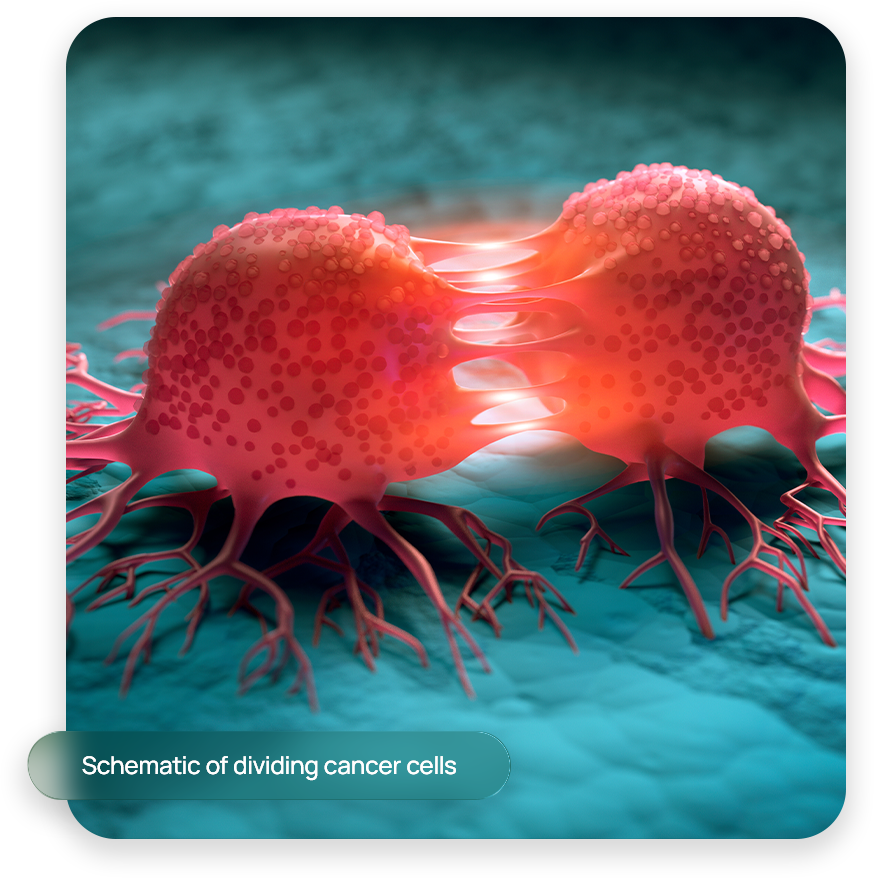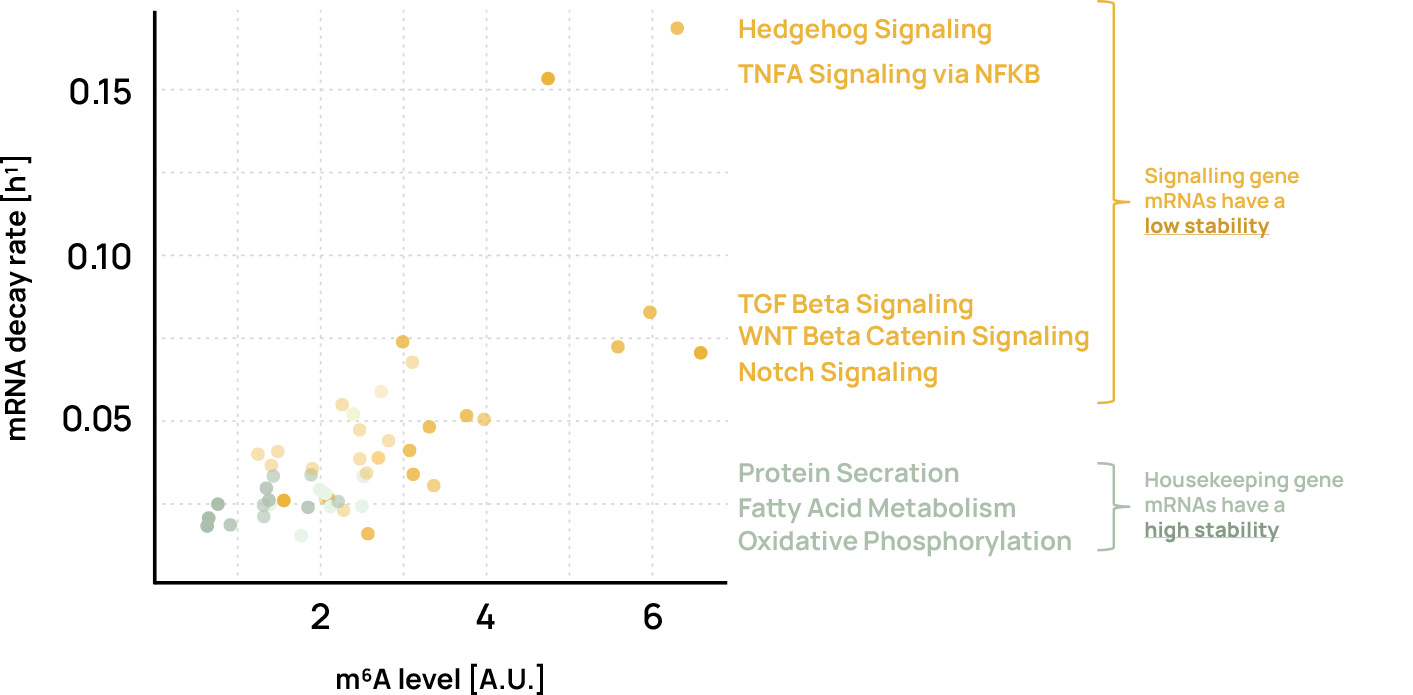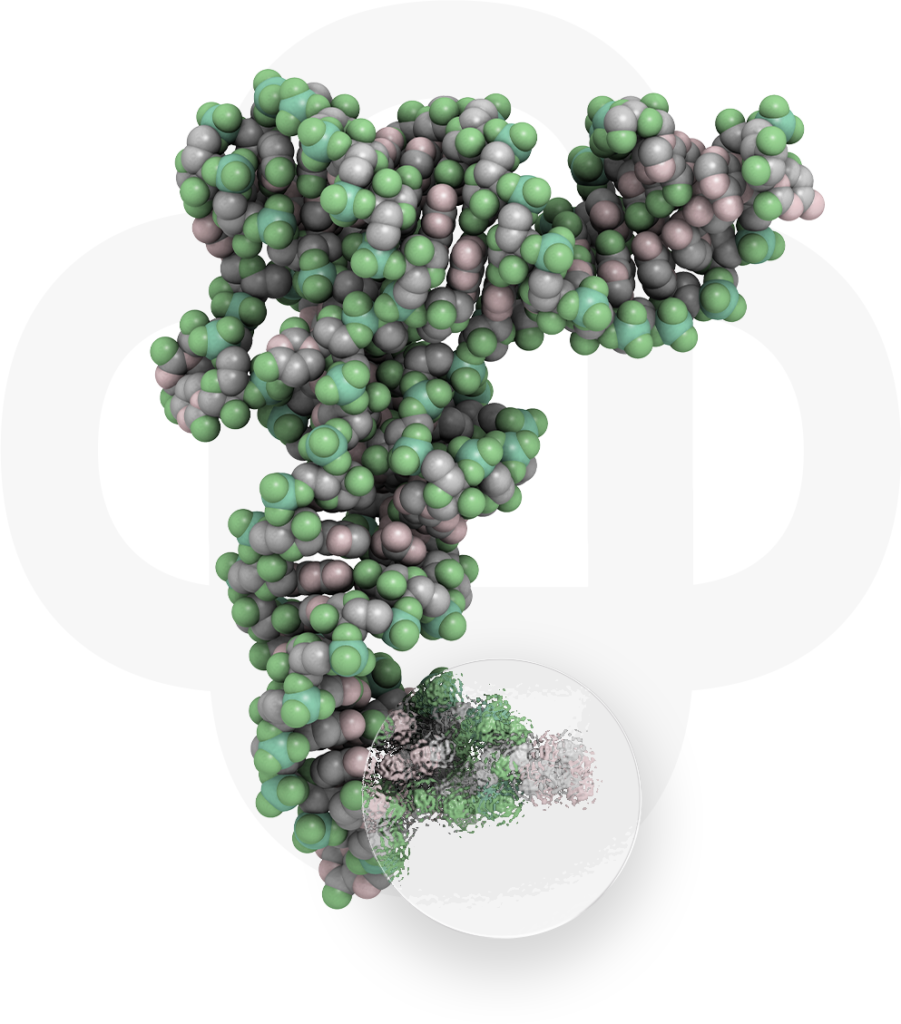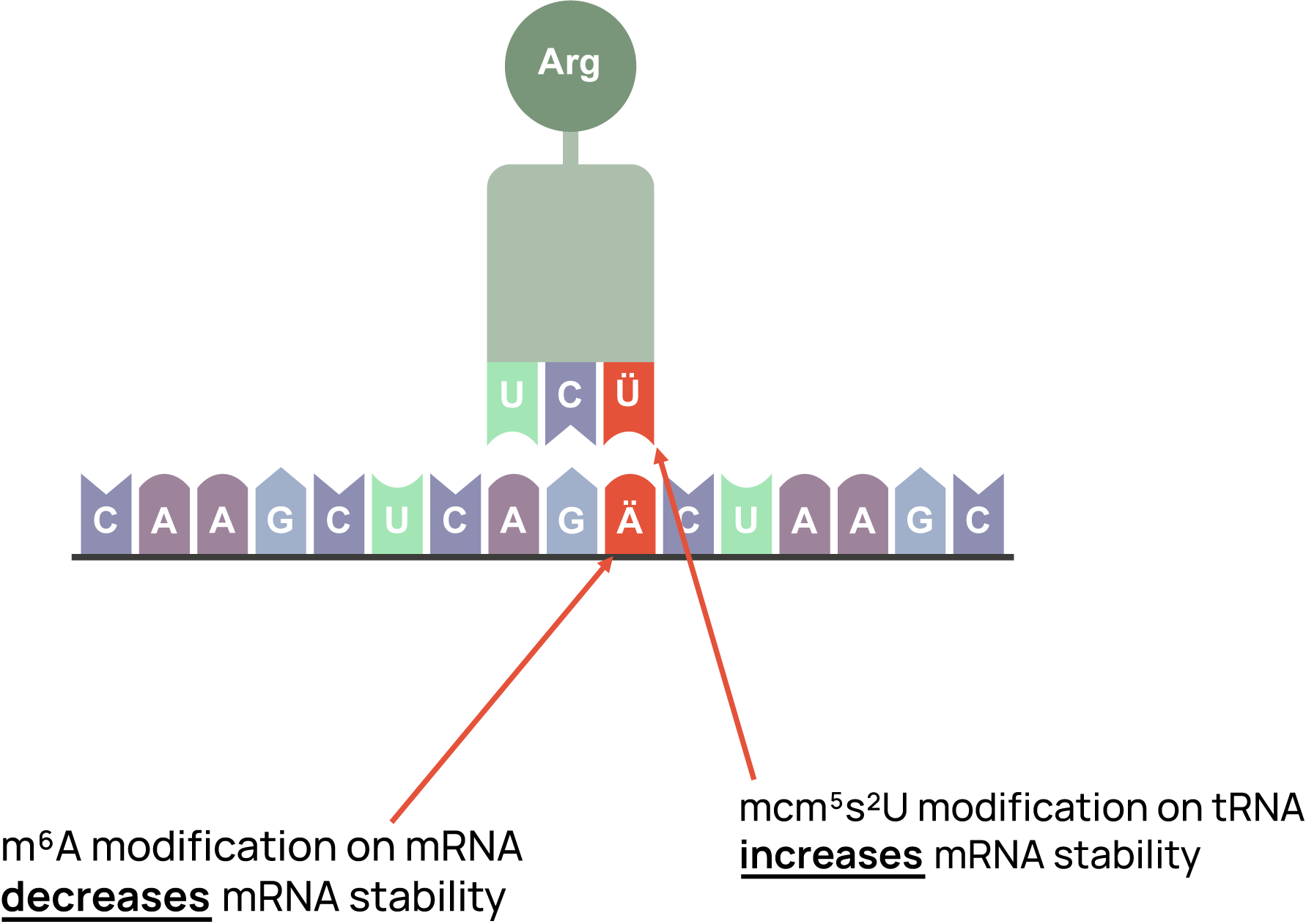Our Scientific Approach

A key feature of cancer and inflammation is the persistent activation of signalling pathways in rapidly dividing cells. This is realized through intensive post-transcriptional regulation promoting continuous cell growth and survival, allowing tumors to expand unchecked.
Disrupting the overactivation and restoring normal half life of mRNAs of signaling molecules is crucial for developing therapies that broadly work on the hyperactivation of cells in diseased states.

*mRNAs of housekeeping genes have a long half-life in the magnitude of days in order to read them over longer periods of time and circumvent the necessity to constantly re-transcribe the gene. In contrast, mRNAs of signaling molecule genes have a very short half-live in the magnitude of minutes to tightly control their expression.

*Cancer cells are highly dependent on the overactivation of signaling pathways and thus stabilize mRNAs of signaling molecule genes through modified tRNAs enabling higher and longer lasting expression. Housekeeping genes are not affected by this mechanism.
AAGGAUUCCUAUGUGGCGÄACGAAUGUGGUAUAAGGAUUCCUAUGUGGCGÄACGAAUGUGGUAUAAGGAUUCCUAUGUGGCGÄACGAAUGUGGUAU
AAGGAUUCCUAUGUGGCGÄACGAAUGUGGUAUAAGGAUUCCUAUGUGGCGÄACGAAUGUGGUAUAAGGAUUCCUAUGUGGCGÄACGAAUGUGGUAU
Reducing cancer growth
by influencing mRNA stability

Novel Molecules to Block
Cancer and Autoimmune Signals
Umlaut.bio is developing small molecules that inhibit the formation of tRNA anticodon loop modifications. This re-couples signaling pathway mRNA translation to decay and thereby suppresses oncogenic as well as inflammatory signaling in a pathway-agnostic manner. Our strategy promises to yield first-in-class therapeutics that can treat a wide range of cancer types as well as autoimmune diseases.
Cancer Uses tRNA Modifications to Sustain mRNA Signaling
mRNA modification m6A limits signaling pathway gene expression by coupling the translation of these mRNAs to their rapid decay. Another RNA modification in the tRNA anticodon loop “reads” this hidden layer of the genetic code and is used by cancer cells to allow the sustained expression of signaling pathway mRNAs.
